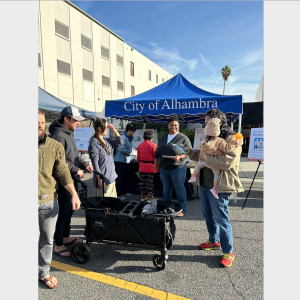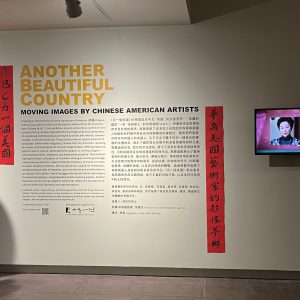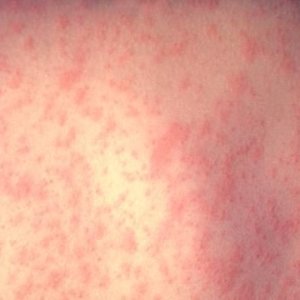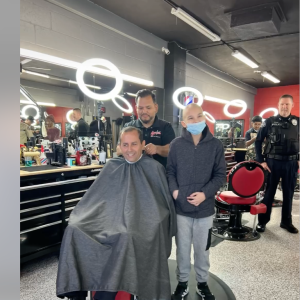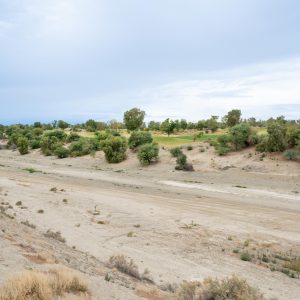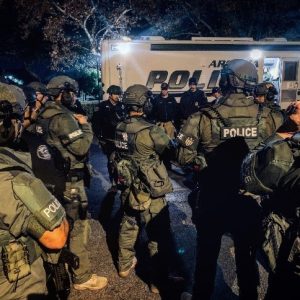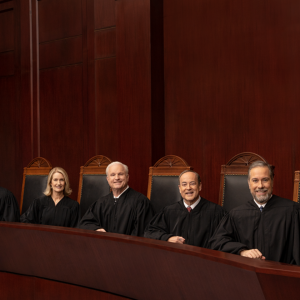 View Winners →
View Winners → 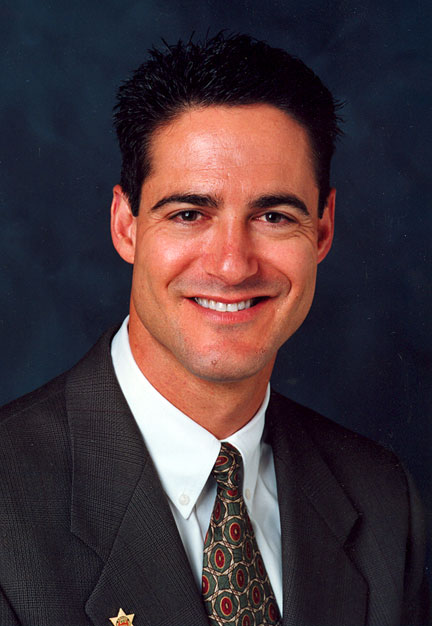
By PAUL ANDERSON
The Orange County District Attorney’s Office on Monday denied allegations raised in newly filed court papers that District Attorney Todd Spitzer lied in documents relating to a double-murder case in an effort to cover up and downplay racially charged comments Spitzer allegedly made in a meeting to consider seeking the death penalty in the case.
The allegations against Spitzer were included in a Friday court filing in the case of Jamon Buggs, who is accused of gunning down two people execution-style in Newport Beach in April 2019.
Spitzer has come under fire in recent weeks following the release of an internal memo, written by recently fired prosecutor Ebrahim Baytieh, documenting comments Spitzer allegedly made during an Oct. 1 meeting with prosecutors to consider whether to seek the death penalty for Buggs. According to the memo, Spitzer asked about the race of Buggs’ ex-girlfriends and suggested some Black people date white women to “get themselves out of their bad circumstances and bad situations.”
In the Friday court document, attorney Matt Murphy contends that Spitzer attempted to mislead the judge overseeing Buggs’ case with a Feb. 4 filing that downplayed the impact of the alleged comments on the decision of whether to seek the death penalty in the case. Murphy also contends Spitzer lied by claiming no one in his office took issue with the alleged comments until a December memo by Baytieh suggesting that Buggs’ defense attorneys should be notified of Spitzer’s remarks.
“The motive for Mr. Spitzer’s lie is obvious: to try to convince the court that the racially charged statements set forth in Baytieh’s narrative were much ado about nothing, instead of what every experienced capital litigator can see that it represents — a blunder of immense magnitude, and a shameful expression of racial bias in a setting of such solemnity and importance, that Mr. Spitzer reversed his position on seeking the death penalty for the sole purpose of keeping the issue hidden from Mr. Buggs’ defense and the public,” Murphy contends in the document.
Murphy has no direct connection to the Buggs case, saying he came across information relating to Spitzer’s remarks while preparing potential litigation against the county, and felt the need to notify the judge in Buggs’ case.
Spitzer’s office on Monday issued a statement saying it had not yet been served with a copy of Murphy’s court filing, but denied any effort to lie or mislead the court.
“Questions of the defendant’s mental competency were brought up by the defense, and his behavior in court on Oct. 27 made it clear that it was an issue that needed to be considered,” according to the District Attorney’s Office, referencing the decision not to seek death for Buggs. “No official decision had been made on the death penalty until the court was notified on Jan. 28 that we would not seek the death penalty. The district attorney filed a motion with the court and articulated the facts of the case. The district attorney made the right decision to inform the court and disclose this situation out of an abundance of caution. The district attorney’s statement to the court was factually accurate and complete, and any allegation to the contrary is simply not true.”
Murphy claimed that Spitzer’s office misled the court in a four-page memo, dated Jan. 30 but filed under seal Feb. 4, asking Orange County Superior Court Judge Gregg Prickett to keep under seal Baytieh’s memo describing Spitzer’s alleged racially charged comments during the meeting with other prosecutors about Buggs’ case.
Spitzer filed the document with the court to respond to Baytieh’s memo, writing that he was “utterly disgusted” by Baytieh’s version of events. He also insisted that Baytieh never brought up any concerns about his comments until his Dec. 22 memo.
Spitzer said Baytieh’s and his memos should not be turned over to defense attorneys, claiming the issue was moot since his office decided against seeking the death penalty and removed all of the prosecutors involved in the October meeting from the Buggs case — including himself.
Spitzer has argued that Baytieh mischaracterized his comments and asked Baytieh to revise his memo to say he meant that Black men date white women as a status symbol or to be more accepted. He cited radio host Larry Elder as an example of a Black man who became accepted in the white Republican conservative establishment with a white fiancee.
Spitzer also accused Baytieh of writing the memo to “extort” him so he wouldn’t fire Baytieh for alleged prosecutorial misconduct in the handling of a separate murder case. Baytieh was fired Feb. 9.
Spitzer has also said in interviews and in the Feb. 4 filing that he raised issues of race because he was concerned Buggs, who is Black, may have killed the wrong woman, who was white, thinking it was his ex-girlfriend, who is also white. Spitzer argued that cross-racial identification is one of the primary reasons death penalty verdicts are overturned, but that phenomena usually comes into play when a witness picks out the wrong suspect in a line-up because of racial bias.
Buggs is charged with killing 48-year-old Wendi Sue Miller of Costa Mesa and 38-year-old Darren Donald Partch of Newport Beach in April 2019. Buggs was not acquainted with Miller, but apparently thought Partch was dating the defendant’s ex-girlfriend, police said.
Spitzer has said he decided to forego the death penalty as an option in part because the defense presented compelling evidence that Buggs suffered significant head trauma over the years from a mid-1990s car crash and from playing football in high school and college.
Murphy suggests in his filing, however, that the decision was related more to Spitzer’s effort to conceal the racially charged comments from the public.
In his court filing Friday, Murphy challenged Spitzer’s claim that none of the prosecutors raised the issue about his comments until Baytieh wrote his memo on Dec. 22. Murphy included with his filing an email from Baytieh to Spitzer on Oct. 28, explaining that under the Racial Justice Act, Spitzer’s comments would have to be turned over to the Buggs defense team, because the new law mandates it to guard against racial bias.
“There would be no reason for Mr. Baytieh to mention the Racial Justice Act in his email if Mr. Spitzer was unaware that the racial comments he had expressed during the Oct. 1 meeting of the special circumstances committee had, in fact, caused great concern for one or more members of the committee,” Murphy said.
The email also refers to a prior discussion Baytieh had with Spitzer regarding the new law and how it affected the Buggs case, Murphy said.
“What’s more, Mr. Baytieh’s email goes on to say that he (Baytieh) `relied on (the Racial Justice Act) in making my recommendation (not to pursue the death penalty),”‘ Murphy said. “Here again, nothing else about Mr. Buggs’ case — other than Mr. Spitzer’s racially biased comments — would have explained Mr. Baytieh’s reliance on the Racial Justice Act as a basis to recommend that Mr. Spitzer not seek the death penalty. Mr. Spitzer’s unabashed attempt to perpetrate a fraud on the court — by claiming that no one who heard the racially biased comments on Oct. 1 protested until Dec. 22 — and thus, Mr. Spitzer argues, the racially biased statements must not have been made at all — relied on the erroneous belief that nobody else maintained copies of this email exchange. Fortunately, he was mistaken.”
Murphy added that Spitzer replied to Baytieh’s Oct. 28 email, notifying him that he had “made the decision to seek DP (death penalty).” But Murphy said that in his Feb. 4 filing, Spitzer claimed he had decided against seeking the death penalty after the Oct. 1 meeting, which “was yet another lie.”
Murphy argued that Spitzer decided to dump the death penalty option for Buggs before Bayieh’s Dec. 22 memo and that he withheld the October email exchange between himself and Baytieh from the judge.









